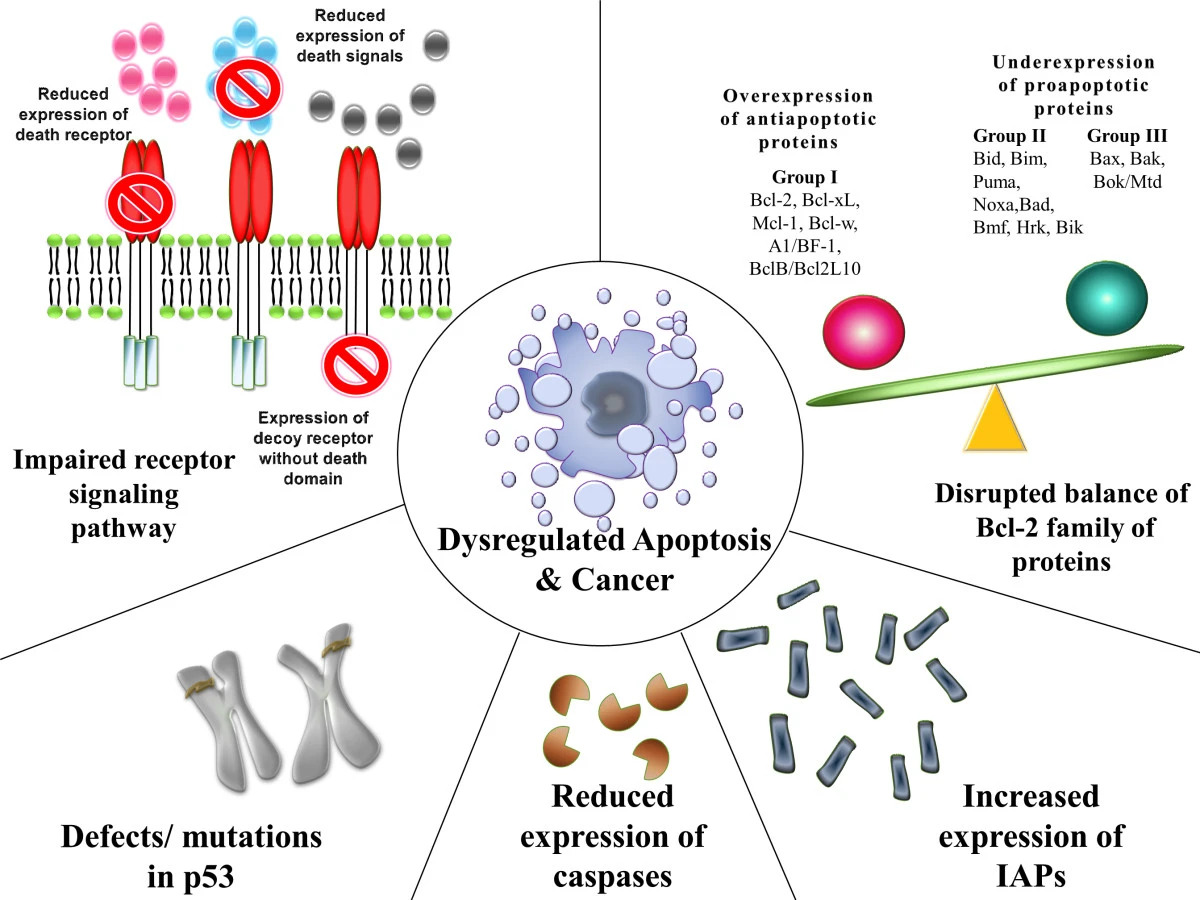Playlist
Show Playlist
Hide Playlist
Hallmarks of Cancer
-
Slides CP Neoplasia Definitions.pdf
-
Download Lecture Overview
00:00 Okay, these are the hallmarks of cancer. If you haven't already been exposed to this, this is a phenomenal review that has been cited well over 3000 times. It is by Hanahan and Weinberg, it was published and sell in 2000. And they were the first to kind of articulate what makes a cancer a cancer. Okay, so what kinds of things have to happen in order to get a good cell to go bad? So you need to sustain proliferation. You need to have oncogenes that are normally responsible for not making cancer, but keeping the cell in proliferation. You need to have those active. You need to have a way to evade growth suppression. So, tumor suppressor genes need to be turned off. You need to resist cell death. Okay, you need to not have apoptosis takeover and kill your proliferating cell. Cells that are going to become cancer also need to have replicative immortality. That basically means that the telomeres at the end of the chromosomes need to be constantly elongated, otherwise the cell will go through replicative senescence. Telomeres are the little repeating subunits of nucleotides that allows to eat back the ends of the chromosomes with each replicative cycle and if you do not reactivate telomerase, making new telomeres, cells that are turning over, over, and over will eventually run out of that end piece, the telomere, and then will go through replicative senescence. So if you're going to be a successful cancer cell, you also have to have that immortality piece. You need to induce angiogenesis. Yeah, we already talked about that because otherwise the cells can't expand beyond a certain small little focus. And, you have to be able to invade and metastasize. 02:08 Okay, so those are the hallmarks of cancer described originally. The same authors Hanahan and Weinberg added to their original group of 6 kind of hallmarks with the 2nd follow on paper in cell in 2011, another good read late at night. And so, it turns out these additional hallmarks will also have an impact on the ability of cancer to progress and also the ability of cancer to be treated. So, cancer cells also deregulate cellular energetics. Many who have heard of the Warburg effect and the Warburg effect is that cancer cells will tend to develop, even in the presence of adequate oxygen, anaerobic glycolysis pathways to generate energy, very inefficient but what it does is preserve all those intermediates so that you can use them for building more cancer cells. So the metabolism of cancer cells changes. Another additional hallmark is tumor promoting inflammation, tumors actually use some of what the inflammatory cells that are being recognized as growth factors. 03:20 Remember macrophages are making growth factors whenever they're doing wound healing? Well, if I recruit a macrophage in to a tumor site and activate it, it may make growth factors that that tumor needs. Pretty clever. Right? You need to avoid immune destruction. 03:37 So, yeah you have all these new antigenicity, you have all these new mutated proteins, you need to avoid the immune system destroying you. And finally, you need to have genomic instability and that's really, I think, a very important hallmark now I've said about 3 or 4 times. Genetic instability is a key feature of malignancy. Now it can't be infinite genetic instability. Because then the cell becomes so unstable that it dies, but it's just enough to give it proliferative potential to all the other things in the hallmarks without leading to cell death. So they referred to the metabolic effects and the tumor promoting inflammation effects as emerging hallmarks and the others has enabling characteristics, but these are all important features in making something cancer.
About the Lecture
The lecture Hallmarks of Cancer by Richard Mitchell, MD, PhD is from the course Neoplasia.
Included Quiz Questions
What is considered a hallmark of cancer?
- Evasion of growth suppression
- Excessive apoptosis
- Replicative senescence
- Inhibition of angiogenesis
- Inhibition of cellular proliferation
What process does the Warburg effect rely upon?
- Anaerobic glycolysis
- Krebs cycle
- Glyoxylate cycle
- Pentose phosphate pathway
- Anaerobic gluconeogenesis
Customer reviews
5,0 of 5 stars
| 5 Stars |
|
5 |
| 4 Stars |
|
0 |
| 3 Stars |
|
0 |
| 2 Stars |
|
0 |
| 1 Star |
|
0 |




